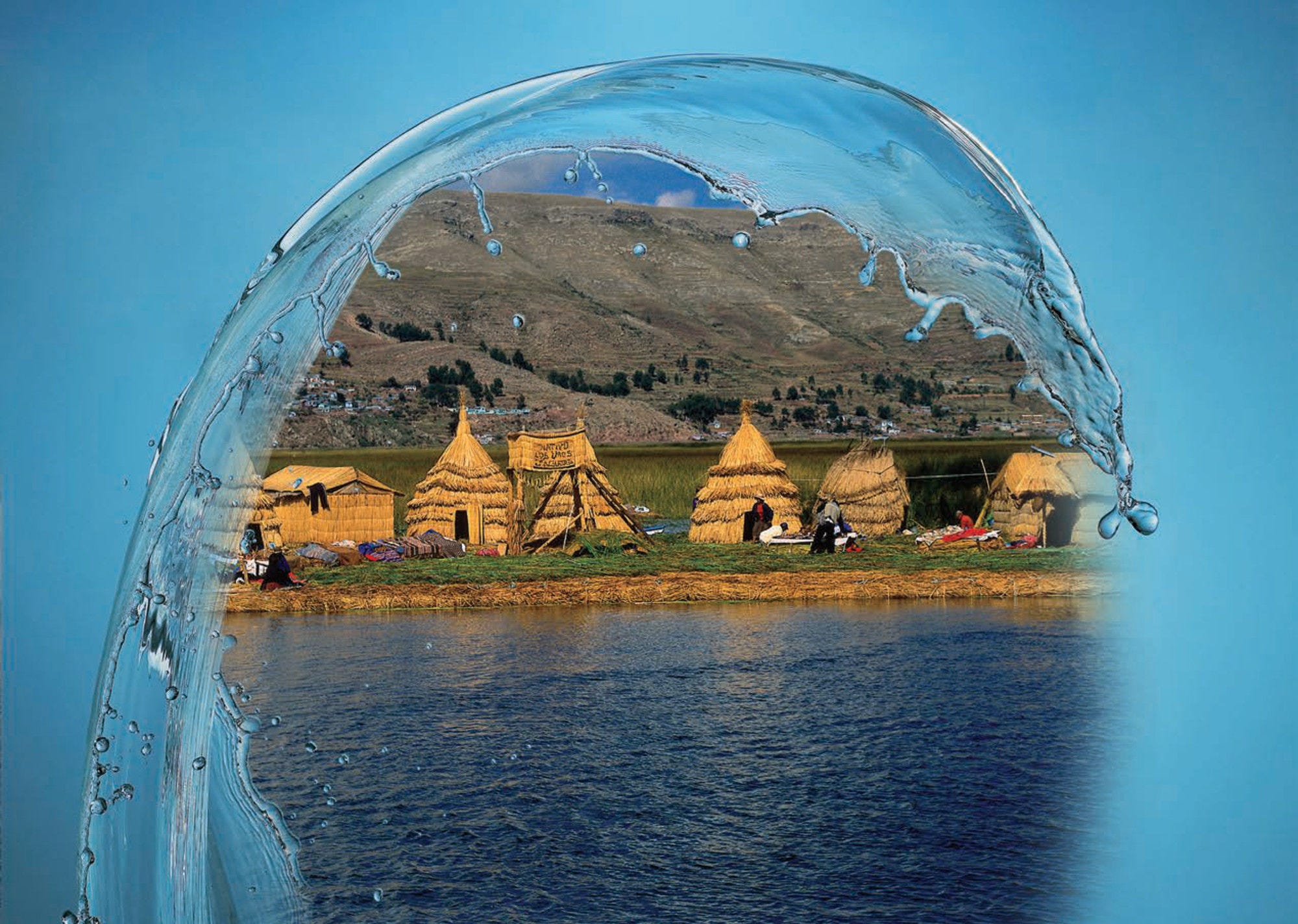This report was prepared by the OECD Centre for Entrepreneurship, SMEs, Regions and Cities (CFE) led by Lamia Kamal-Chaoui, Director, as part of the Programme of Work and Budget of the Regional Development Policy Committee. It is the result of a 2 year policy dialogue with 175 stakeholders across all levels of government in Peru, as well as from public, private, and non-profit sectors (Annex D).
The policy dialogue and the underlying report were co-ordinated by Oriana Romano, Head of the OECD Water Governance Programme, under the supervision of Aziza Akhmouch, Head of the Cities, Urban Policies and Sustainable Development Division in the CFE. The report was drafted by a core team comprised of Oriana Romano and Elisa Elliott Alonso, Junior Policy Analyst in the CFE (Chapter 1 and Annexes), Gonzalo Delacámara, Head of the Water Economics Department, Madrid Institute for Advanced Studies (IMDEA) (Chapter 2), Gérard Bonnis, Senior Policy Analyst, OECD Environment Directorate (Chapter 3), as well as Anna Pietikainen, Senior Policy Analyst and Martha Baxter, Policy Analyst, in the OECD Directorate on Public Governance (Chapter 4). Ander Eizaguirre, Juliette Lassman and Melissa Keri-Dikeni, Junior Policy Analysts in the OECD Water Governance Programme, CFE provided inputs for the analysis and contributed with desk research.
The OECD Secretariat is grateful for the high-level political impetus and commitment from the Minister of the Environment Gabriel Quijandría Acosta, as well as his predecessors in the early stages of the policy dialogue, namely Elsa Patricia Galarza Contreras, Fabiola Muñoz Dodero and Lucía Ruiz Ostoic. Special thanks are herein conveyed to the Peruvian local team from the Ministry of Environment, led by Luis Marino Nava, General Director of Economy and Environmental Financing and coordinated successively by Yolanda Zuñiga Fernandez, and Analia Alejandra Aramburu Inga, Policy and Public Management Advisors, for the excellent coordination and collaboration throughout the policy dialogue. The Secretariat is also very thankful to the member institutions of the multilateral commission set up to foster multi-sectoral consultation in the process, namely the Ministry of Agricultural Development and Irrigation (Ministerio de Desarrollo Agrario y Riego, MIDAGRI), the Ministry of Energy and Mining (Ministerio de Energía y Minas, MINEM), the Ministry of Foreign Affairs (Ministerio de Relaciones Exteriores, RREE), the Ministry of Health (Ministerio de Salud, MINSA), the Ministry of Housing, Construction and Sanitation (Ministerio de Vivienda, Construcción y Saneamiento, MVCS), the Ministry of Production (Ministerio de Producción, PRODUCE), the Ministry of the Environment (Ministerio del Ambiente, MINAM), the National Water Authority (Autoridad Nacional del Agua, ANA), Peru’s water regulator (Superintendencia Nacional de Servicios de Saneamiento, SUNASS), the Presidency of the Council of Ministers (Presidencia del Consejo de Ministros) and the Technical Body for the Administration of Sanitation Services (Organismo Técnico de la Administración de los Servicios de Saneamiento, OTASS).
Furthermore, the policy dialogue benefitted from valuable insights from several peer reviewers who contributed through their valuable expertise and country experience, participated in onsite and virtual missions and provided international best practices as well as guidance on the report. They are herein gratefully acknowledged, namely Peter Gammeltoft, former Head of Unit for Water at the European Commission, Jaime Fernando Melo Baptista, former Chairperson of the Portuguese Regulatory Authority of Water and Waste Services (ERSAR) and President of the Board of Directors of LIS-Water –(Lisbon International Centre for Water, Portugal), Gonzalo Delacámara, Head of the Water Economics Department, Madrid Institute for Advanced Studies (Spain) and Patrick Frenel, former Head of Geographical Services, Water Agency Loire-Bretagne (France).
As part of an inclusive and bottom-up consultation process, the draft report was shared for comments with stakeholders from Peru (see Annex D) who were engaged throughout the policy dialogue via interviews and webinars, as well as with the members of the OECD Water Governance Initiative. Interim findings and progress results were also presented and discussed at the 12th and 13th meeting of the OECD Water Governance Initiative (20-21 June 2019, Berlin, Germany and 9-10 January 2020, Paris, France). The report was submitted for approval by written procedure to the Regional Development Policy Committee on 19 February 2021 under cote CFE/RDPC/WGI(2021)3. Special thanks are extended to François Iglesias and Pilar Philip for preparing the report for publication, and to Eleonore Morena for editing and formatting the report.
